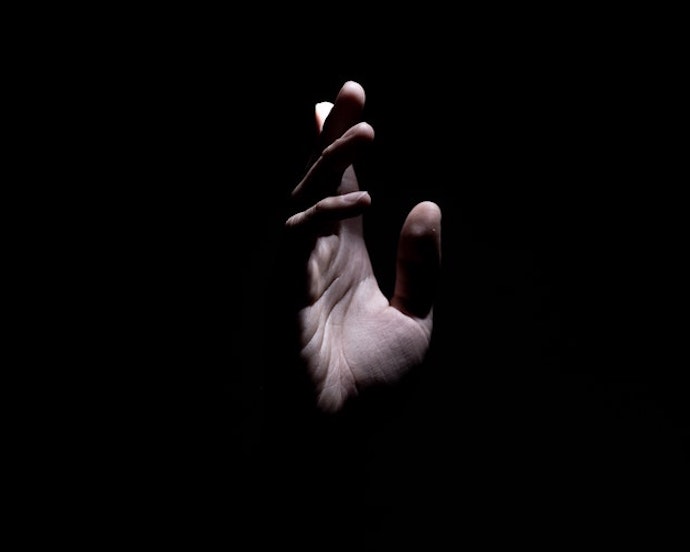
by Eric Burnham | Oct 19, 2018 | Inmate Contributors
It deeply saddens me that what has become institutionalized hypocrisy is rapidly leading to the erosion of civility and free speech in this country. Opposing views are rarely debated with substance and intellectual force. They are attacked with ritual humiliation and even violence. It is truly stunning how far we’ve strayed.
The First Amendment to the United States Constitution has guaranteed the free expression of ideas:
Congress shall make no law respecting an establishment of religion, or prohibiting the free exercise thereof; or abridging the freedom of speech, or of the press; or the right of the people peaceably to assemble, and to petition the government for a redress of grievances.
— First Amendment to the U.S. Constitution
There are no established ideas that are untouchable. We are all free to think for ourselves. This uniquely American ideal has informed and shaped the culture of this country for over 240 years. Recently, it seems, this is changing. But if congress — the body of elected officials granted the power to write the laws of the nation — cannot curtail the free expression of ideas, why are we doing it to each other?
The spirit of the First Amendment holds us to a standard: I may utterly despise absolutely everything you have to say, but I will always fight for your right to say it. Unfortunately, the shifting temperament of present-day culture has forgotten how precious this privilege is in history. People groups galvanized against other people groups have turned countrymen into enemies by alienating those who think differently. Examples are legion.
For instance, take the NFL players kneeling during the national anthem in protest: They have a fundamental right to express their displeasure with the structures of society they feel need to change — it is okay for them to have those views and to speak out about them! On the other hand, there are those who feel the sideline of a football field during the singing of the national anthem is not the venue for protest and are, consequently, offended — it is okay for them to have those views and to speak out about them! Regardless of one’s opinion about the issue, we should all cherish the fact that we live in a country where we can openly disagree, rather than attacking one another.
Inflammatory personal attacks are increasingly poisoning our public discourse, normalizing the degradation of the human beings with which we disagree. This is fragmenting American society, resulting in opposing factions taking stands against each other.
Another example, Laura Ingraham, a commentator on Fox News, told Lebron James to “Shut up and dribble” on her show that reaches roughly 20 million people. Her statement was made in response to Lebron’s posting of a private conversation with fellow NBA star Kevin Durant in which he expressed some political views.
Long-time comedian, Roseanne Barr, was publicly vilified and subsequently fired because of an admittedly grotesque and racist tweet about an African-American woman who formerly worked in President Obama’s administration. Yet the New York Times — just last week — defended one of its reporters after several derogatory, racist, and even violent tweets against White people surfaced. President Trump has continued to normalize incendiary remarks about virtually everyone with whom he disagrees. On college campuses across the nation ideas are shouted down if they are perceived to be controversial. The list goes on.
C’mon man! We are destroying our First Amendment rights in the fog of tribalistic warfare. What seems to have escaped our culture’s grasp is that we must remain united, linked together by the core values, the shared privileges of the First Amendment — because ideas and methods of expression are inherently subjective, and in the United States, we have been granted the privilege of being able to think differently than everyone else, even to hold racist, sexist, or homophobic views if we choose, as long as we do not act on them in ways that injure others.
Personally, I despise racism, sexism, homophobia, ageism, or any other ideas that work to install an artificial hierarchy based upon race, gender, sexual orientation, age, religion, or socioeconomic background, and I appreciate substantive arguments that marginalize those views. Yet, I still hold dear the Constitution that provides the liberty, by law, to hold and to express not only abhorrent ideas like these, but also those ideas that generate honesty, equality, progress, innovation, forgiveness, and love.
Freedom of speech is not free. We must never forget that. With the freedom to express our thoughts, feelings, opinions, and ideas comes the freedom to disagree — and the responsibility to defend that freedom. We may not like what someone else has to say, but we should engage those ideas in order to change the opinions behind the words we don’t like. Even if we strongly disagree with the opinions expressed, or the venues chosen to express them, we still must stand up for the right of them to be expressed. When opposing ideas are silenced, it should make all Americans tremble, whether they are black, white, brown, man or woman, gay or straight, young or old, republican or democrat. It is precisely for times like these that the First Amendment was ratified. Throughout history we have seen what happens in societies that succumb to the pressure to silence unpopular opinions — atrocity is never far behind. What if the winds of popular culture shift, and it’s your opinion they come for next?

by Martin Lockett | Oct 18, 2018 | Inmate Contributors
With over 2 million citizens of this country locked in cages, one can’t help but feel as though our lives are dispensable. One can’t help but feel as though our society deems us not worthy of correction that would send us back to our communities as assets rather than liabilities. If the trend has been to lock up, throw away the key, and provide very few mechanisms for rehabilitation, how can anyone reach an alternative conclusion to what I just outlined?
For myriad reasons, many of us chose a wayward path during our youth that involved crime, drugs, and more. It’s also important to note that this behavior took root before our brains were able to develop into a mature, rationally-minded person. Not to make excuses, but our immature brains that hadn’t undergone the process of strengthening our neocortex — responsible for rational thought, projection of consequences, goal-setting, and more (studies show the adult brain reaches full development around 26) — were in full swing in our decision-making processes. Many parents with teenagers and young adult children will readily attest to the frustration they endure over the many mindless decisions their impulsive children make; the good thing is most of these decisions are not costly, certainly not in terms of leading to violations of state laws that can result in long prison sentences. And then there are the rest of us.
Those of us who came to prison at a young age (prior to 26), are forced to navigate a new world of criminality, manipulation, violence, brutality, and inhumane conditions of many proportions. We are left with our self-preservation skills, will to survive, and, if we are lucky, an environment that supports our developmental process that will likely include a desire to change, learn, and grow. This is what I found early in my sentence and thank God I was able to take full advantage of the opportunities that presented themselves, eventually leading to a graduate degree and a state certification in the substance addictions field. I now have an insatiable drive to deliver these services to the community that I took so much from when I am released in a few short years. Today, my life has value, purpose, and meaning.
When human lives are trafficked through our penal system like product on a conveyor belt, dumped into large trash bins (prisons) with no way to climb out for countless years, our society sends us a powerful message of what our worth is — or is not. Yet, I have had the privilege (yes, that’s not a misprint) of knowing some of the most incredibly talented, altruistic, intelligent people I have ever known right here in these “trash bins.” I believe this is because while here they dug deep within themselves to discover who they really are without the influence of substances, negative environs, and, oh yes, the opportunity for their immature brains to develop. That’s the good news. The bad news is many of them will never see the light of day in the free world again. Many will be over 100 — if they’re so lucky — before their release date comes. Their talents, gifts, and value are limited to being realized only within these walls. What a shame.
We are encouraged to recycle many products after using them because we know, once sent through a process of being broken down and restored to new form, these products will once again have value; they will go on to serve another purpose. In the same way this is an expected outcome, human lives are also of value and purpose after coming through this rigorous process. Of course, we could do far better as a society with what we offer those in prison to restore themselves, but that aside, many undergo a life-changing maturation process while here based on their sheer determination and self-will. So please, in the same way you refuse to throw away your plastic milk cartons, do not throw us away — recycle us. Allow us to show you our value.

by Martin Lockett | Oct 15, 2018 | Inmate Contributors
For too many years of my life I assumed my actions affected me and only me. So what if I chose to drink away my pain? So what if I messed up, got arrested, and got sentenced to many years in prison: I’m the one doing the time, or so I thought. I couldn’t see beyond myself and the consequences I’d reaped to see the pain in the faces others who love me — not to mention in all the victims I created while living my life of crime and addiction.
My parents did the very best they could to raise my brother, two sisters, and me. They worked hard, bought us presents for every birthday and Christmases and spent quality time with all of us on a daily basis. We were never considered middle class from a financial standpoint, but I never felt as though I lacked anything that my middle-class friends had.
I added this context to show how my actions were strictly of my own volition — my parents raised us with values. So, when I came to prison at 19, my parents should have felt no guilt for my predicament; but what do you think actually happened? Naturally, any parent is going to question why their son (or daughter) went wayward, what they think they could have done differently to change the path I’d taken. My decisions tortured them, kept them up many a night, and brought them to experience agony they did not deserve.
They were now put in the unfortunate position of visiting their son in this god-forsaken place, often times being treated like a criminal themselves when they came to visit. They were compelled to now support me, not by giving me money for a birthday or Christmas but helping me buy commissary, hygiene products, and paying for phone calls. They did not deserve this — they never did. Now, they are both gone, and this is the last place they were able to hug their son.
My twin brother, sisters, nieces and nephew have likewise had to come into prison for 15 years (plus three more on a previous prison stint) if they wanted to see me. They are forced to celebrate my birthdays by sending a card — not taking me out to dinner or otherwise. If they want to talk, they have to pay $4.80 for 30 minutes. My nieces and nephew have not had their uncle at birthdays, Christmases, graduations, and so much more. I have been forced to watch them grow up through pictures. My family has been nothing but law-abiding citizens their entire lives and by no means deserve to be subjected to this situation. But because they love me, they would never abandon me. They do not deserve what my actions have put them through.
My victims and their families did not ask to have their lives shattered by the tragedy that I solely produced 15 years ago. Their lives were cut short, never able to reach the full potential they possessed. Future generations of their families will never meet them and come to know the beautiful souls they had. My addiction, recklessness, and complete selfishness severely altered their lives forever. They were doing everything right; I was doing everything wrong, and now they are not here but I am. How is that fair? I obviously cannot answer that, but what I can say with absolute certainty is they — none of them — deserved what I did to them.
For many of us in prison, because we are the ones physically secluded from society and deprived of any semblance of freedom, we equate this with the notion that we’re the only ones affected by our bad decisions. But as I have outlined here, this is simply a misguided, narrow-minded viewpoint. Not only our victims, but also our families, significant others, friends, and many others are affected by the costly decisions we made. Coming to prison is a burden to so many people who didn’t deserve it. The sooner I was able to realize this truth, the sooner I was able to start to rehabilitate. Cognitive classes, church, and educational courses are all positive ways to spend one’s time in prison, but without coming to terms with the massive ripple effect left in the wake of our crime and subsequent prison stay, true rehabilitation and accountability will be impeded.

by Martin Lockett | Sep 14, 2018 | Inmate Contributors
The following speech was delivered at the Weusi Umoja Social at OSCI — August 22, 2018
Good evening. I hope everyone is enjoying their time tonight with their friends and family. As it was just mentioned, this year we chose to honor Rosa Parks. She is obviously a well-known American icon who had a pivotal role in the civil rights movement, so we felt it was important to highlight exactly how she carved an indelible mark in American history.
On December 1st, 1955, in downtown Montgomery, Alabama, Rosa Parks boarded a city bus, paid her fare, and took a seat in the first row of back seats that were reserved for blacks. As the bus continued its normal route, all the seats that had been reserved for white passengers filled up. When the bus driver noticed a few white passengers standing, he moved the “colored” sign behind Mrs. Parks and demanded she move. After she refused several times, he threatened to call the police and have her arrested. Unfazed by his attempt to intimidate her, she calmly and defiantly replied, “You may do that.”
Her arrest garnered the attention of the local NAACP, and three days later it was announced there would be a bus boycott where all blacks would abstain from using any city bus for as long as it took for them to be treated with the same level of courtesy afforded white patrons. This undertaking needed coordination by a capable leader, so a young preacher from Atlanta was brought in to lead the bus boycott. He would soon become known to the world as Dr. Martin Luther King, Jr.

The Montgomery bus boycott was made possible because the black community banded together, rode in carpools, and took black-operated cabs that charged the same rate as bus fare; the remaining forty-thousand commuters walked. This would last for three-hundred and eighty-one days, forcing the city to repeal its Jim Crow law requiring segregation on public buses. This precipitative event catalyzed a mass movement, again led by Dr. King, known as the Civil Rights Era. This movement shone an undeniable spotlight on the everyday injustices that afflicted blacks in their communities across the country. These relentless efforts culminated with the passage of landmark legislation in the Civil Rights Act of 1964, followed by the Voting Rights Act of ’65
Years later Mrs. Parks sat down to be interviewed by her biographer, and in it she told him, “People always say I didn’t give up my seat because I was tired, but that isn’t true . . . I was only tired of giving in.” Whether she knew it or not, when she defiantly stayed in her seat, she became the face and voice of countless black people across this country who were also tired of being denied seats at lunch counters, or the right to vote in local, state, and federal elections. In that defiant moment she represented every black person who was tired of being denied employment and educational opportunities, those tired of being relegated to second-class citizens in the only country they had ever known
For her courage and tenacity that led to legislation that would benefit not just black people but society as a whole, she became affectionately known as the Mother of the Freedom Movement. Notice the operative word in that title is “movement,” and here’s why: Mrs. Parks and Dr. King are icons not solely because of their individual heroism, but because of the masses of people who joined in their fight, which constituted a movement
When we traverse the annals of US history, it is readily apparent that anytime there has been revolutionary social change it’s been attributable to the people. As imperfect as they may have been in 1776, it was the people who rose up against a tyrannical king to proclaim their independence and defeated, at that time, the world’s greatest military to establish their national sovereignty. From 1861 to 1865, it was the people — an army in fact — who fought their neighbors to the south to put an end to America’s original sin, settling once and for all that the US economy would no longer be predicated on human bondage. In 1920, again, it was the people who joined forces with fearless women across this nation to help them secure their inherent right to the franchise. From 1955 through 1965, it was the people who hailed from every corner of this country to stand with Mrs. Parks and Dr. King to fight for equality for those it had been denied because they understood that, despite our differences, we are all citizens of the same country that we love, have fought for and died protecting; and therefore are entitled to the same fundamental rights. And finally, in 2008, it was the people who — led by the courage of their conviction, casting aside any bias or preconception — did what I thought would never happen in my lifetime: elected the first black president of the United States of America. This is the story of America! And because we are a work in progress, it will continue to be the people who will advance the American narrative so that its future looks less and less like its troubled past, and more and more like the ideals and principles we espouse.
This is why Rosa Parks sat, why Dr. King marched, why Barack Obama ran and why we should all feel a moral obligation to act; to act with kindness toward people who may not look like us, talk like us, or dress like us; to commit random acts of service for people who have nothing to offer us in return; to act with the keen understanding that the evolution of our society in general and the enhancement of race relations in particular are contingent on each and every one of us — and the manner in which we treat each other. Enjoy the rest of your evening. Thank you.
“I have learned over the years that when one’s mind is made up, this diminishes fear; knowing what must be done does away with fear.”— Rosa Parks

by Melissa Bee | Sep 9, 2018 | News
The Texas Observer reports on a compelling exhibit at the Contemporary Arts Museum Houston (CAMH) titled Walls Turned Sideways. “Named after an epigram by Angela Davis — ‘Walls turned sideways are bridges’ — the show includes the work of 42 artists and artist collectives from across the country, many of them current or former prisoners. The multimedia exhibition, on display until January 6, is accompanied by an ambitious, 464-page catalog containing essays by dozens of scholars, artists and activists.”
The project was five years in the making, by freelance curator Risa Pulei. “I wanted to focus on artists who were using their art strategically to show us something we didn’t know,” Puleo says. “I’m not an activist, I’m not a lawyer. I’m a curator. So what is the thing that only art can do?”
Admission is free. On display August 25, 2018 – January 6, 2019

by Melissa Bee | Aug 16, 2018 | From the Staff, News
Please sign and share this petition Stop Taking Our Family Visitation Time Away
For news updates about the issue, check here at The Forgotten Majority.

by Guest Blogger | Jul 28, 2018 | Natalie Korman
Research has shown that physical human touch, particularly positive and supportive touch, is necessary for a healthy emotional state. While many people may be familiar with babies needing to be held and cuddled to develop healthily, humans in general must also receive and give positive physical contact to maintain a healthy emotional state.
Many adults, even those with numerous family and friends may be lacking in positive physical contact. However, incarcerated people are not just among the most socially isolated in our society, they are physically isolated — specifically, isolated from positive human touch.
While it may be common knowledge that violence — including sexual violence — occurs in prison, the gravity of the issue may not be as widely considered. Whether at the hands of their fellow inmates or of prison staff, incarcerated people may only know for years what it’s like to be touched by people who either have no interest in their wellbeing or outright wish them harm or death.
Some prisoners may be lucky enough to enjoy the spontaneous, positive touch of fellow inmates who are also friends. However, when some nonviolent touch occurs it may be calculated and particular. Friends or allies may shake hands or even embrace. But every moment of physical contact may be measured in some way to initiate or preserve alliances, or break them, in order to maintain the inmate’s status or survival in prison. And if inmates do engage in nonviolent, consensual sexual activities with each other, it is always illicit, per prison rules.
Incarcerated people are, of course, also denied the ability to touch their loved ones: their family and friends. While some prisoners can touch visitors, if they have visitors at all, some are separated by thick glass. Others still might find visiting hours cruelly unaccommodating. Additionally, highly invasive strip searches are standard procedure before and after a prisoner receives a vist. Millions of opportunities for positive physical contact are poisoned or vanish altogether as soon as a person enters prison.
Shrinking visiting hours and poor opportunities for communication plague inmates and their families. Private companies provide prisons with services for phone calls, video calls, and email (at a profit) and there is growing concern that these extremely expensive digital and phone connections are replacing in-person visiting at some facilities, further distancing prisoners from positive human touch.
While many prisoners may have the dogged support from and frequent contact with family and friends, there are many who do not. Some prisoners, for a variety of reasons, receive few or no letters, phone calls or visits. This can have a devastating effect on the person in prison.
Solving the issue of the lack of positive human touch and supportive human contact for people incarcerated in the United States is a matter of a greater scope than this post can address. But there are ways individuals and institutions can support prisoners within the current context of incarceration even as organizers and activists resist against a system that so thoroughly dehumanizes millions of people.
Writing to a prisoner, for example, is one of the easiest ways to give support. Receiving their calls, sending supplies and books, or visiting them in person is vital to any given prisoner, too. But a letter is usually the easiest way for someone on the outside to reach in. And while letters cannot replace face-to-face contact or ease the lack of positive touch prisoners face, letters can provide an emotional lifeline to someone in dire need of one.
Adopt an Inmate facilitates the connection between incarcerated individuals and the people who wish to lend their support. AI is always looking for compassionate people who want to be there for someone who may have no one else on the outside. Submit this form to start the process.
 Natalie Korman is a poet, writer, and editor living in Northern California. She is the author of the poetry chapbook Heliotropics (dancing girl press). In 2017, after being introduced to Adopt an Inmate by a former classmate, Natalie began correspondences with two people through the organization; both are now meaningful friendships. In the spirit of Adopt an Inmate, Natalie believes ongoing healing from institutional and interpersonal harm is a necessary part of the struggle for a more just and peaceful world.
Natalie Korman is a poet, writer, and editor living in Northern California. She is the author of the poetry chapbook Heliotropics (dancing girl press). In 2017, after being introduced to Adopt an Inmate by a former classmate, Natalie began correspondences with two people through the organization; both are now meaningful friendships. In the spirit of Adopt an Inmate, Natalie believes ongoing healing from institutional and interpersonal harm is a necessary part of the struggle for a more just and peaceful world.

by Martin Lockett | Jun 30, 2018 | Inmate Contributors
I cannot tell you how many times I have witnessed or have heard about men in this situation either meeting a woman via a pen pal website — or otherwise — and developing a strong relationship or even getting married, only to have it go awry. The euphoria of knowing someone in the outside world cares enough to write, answer phone calls, and visit can be enough to propel someone in prison through a 10-year sentence with a positive outlook on life. I have also, however, seen the opposite happen, where someone has been served divorce papers served from his long-time wife and grew embittered, angry, and pessimistic toward everyone around him throughout the remainder of his sentence. Both scenarios affirm the need for and importance of being loved; of knowing there is someone outside of these thick despairing walls who values what you have to offer them, despite your current circumstance.
Of course I would never criticize someone for deciding to divorce or leave their incarcerated spouse/partner because they have every right to do what they feel they need to do; I’m only asserting how vital it can be for a prisoner to receive love from outside, and how that sense of security can shift one’s entire outlook on life, which ultimately influences how they do their time.
When we come to prison, our need for compassion, understanding, and love is heightened because we are essentially deprived of intimate (emotional and physical) human contact. We have a need for validation that our lives still matter, that we are worthy of the same attention and love we received prior to our incarceration. This is also the reason why many men (and women) who are incarcerated will pay less attention to physical standards in order to receive the love and attention they so desperately desire from someone they may not have looked at twice before. This is not to disparage those whom they will court, but merely a fact of the desperation of those in prison to have a basic human need met. I have seen relationships like these thrive both inside and outside these walls. Through them, many men have learned it is not what someone looks like, but rather the essential qualities of the person that lead to true happiness.
Of course I would be remiss if I ignored the darker side of this dynamic, which is the all-too-common result of an unsuspecting woman (or man) being manipulated into a relationship with someone in prison, only to be abandoned the day the prisoner is released, confirming he was only in it for what he could get while incarcerated. This happens because the criminality with which the prisoner has operated for so long is still very much active; he or she has no desire of changing or ridding themselves of the deviant nature they’ve relied on for so long to navigate the world. Unfortunately, well-meaning people are ensnared in their vicious trap of relationship deceit and taken advantage of for their money, time, and most importantly their emotional investment.
Family and friends, and society in general, are often critical of those who enter into a relationship with someone in prison, but this not unexpected due to the possibility of the aforementioned scenario. But there are relationships on the opposite side of this coin, that are genuine, mutual, and built on the pillars of a healthy union. Therefore, if you are someone in a relationship with a prisoner, allow me to first commend you on being able to look past the fences and barbed-wire to see something special in your partner. Allow me to say good for you for being able to exhibit a level of strength and internal fortitude to not be beaten down and discouraged by the attacks of those who think you are crazy for sticking by your incarcerated partner. You are a special person for understanding and doing what it takes to weather the storms of committing someone who is incarcerated, knowing that prisoners are simply people who need love too.

by Martin Lockett | Jun 28, 2018 | Inmate Contributors
Many have exclaimed, “Addiction is NOT a disease — it’s a choice!” A disease, they’ll say, is something that you have no control over; it suddenly afflicts you when you least expect it and wreaks havoc on your life. People don’t do anything to bring about disease in their lives. Addiction, on the other hand, is something that people choose to engage in. No one makes anyone drink their first drink — or any drink thereafter. No one is forced to do drugs at any point in their life, yet drug addicts, they’ll point out, choose to participate in drug-seeking behavior, hang out with other drug addicts, and repeatedly make irrational, counterproductive decisions that invariably result in self-destruction. How can this possibly be tantamount to someone who has a disease that they didn’t ask for?
As I noted in my previous blog entitled Understanding Addiction, addiction takes root in the midbrain — otherwise known as the limbic system. The limbic system is home to what is known as the pleasure pathway — receptor sites that release chemicals that make us feel good when we engage in pleasurable behaviors like eating, sex, playing, etc. What differentiates an alcoholic/addict from a non-addict is the way in which this neural pathway is activated and affected by drugs and alcohol. What causes this is extremely complex, but what is consistently found lies in genetics.
Studies show that between 40 – 60% (DSM V) of the variability in alcoholics comes from parents where at least one has also suffered from alcoholism. When it comes to drug addicts, this variability hovers around 50% (DSM V). These findings were substantiated by countless identical twin studies that showed, despite being adopted into different homes where the environments were nurturing, wholesome, and drug/alcohol free, twins whose biological parents were addicted to alcohol were still more likely to develop alcoholism than others reared in those environments who were not born to such parents. The variances in studies are endless, but the result was the same: genetics play a profound role in addiction. But what does this have to do with it being considered a disease and not a choice?
Let’s look at diabetes, for instance, when we consider the affliction of disease. Diabetes results as a malfunctioning of the pancreas, which produces insulin. Either the body stops producing it altogether or in such low amounts that it is rendered ineffective to take in the nutrients from the food we eat. But what underlies diabetes? Why do people develop it? Well, a scant amount of unfortunate people are born with it or develop it as a child — this is known as Type One diabetes. But the vast majority of people develop Type Two diabetes as adults, which is attributable, in large part, to poor diet and lack of exercise. In other words, unhealthy lifestyle habits are predominately to blame for their disease. As a result, they go to a doctor who tells them to lay off certain fatty foods, start exercising, take a pill or insulin shots, etc. If they comply, they can go on to live good quality lives; if not, their condition will likely worsen, and death may ensue. Are choices involved in their prognosis? Did their lifestyle choices have anything to do with their disease onset? Yet, we don’t demonize and vilify them like we do an alcoholic or drug addict — why?
What I failed to mention in speaking about people who have diabetes is it’s not solely their poor lifestyle habits that doomed them to acquire a deadly disease. Think about it, some of the worst eaters and laziest people we know have never gained weight and will likely never get diabetes, congestive heart failure, high blood pressure, or any other dreadful health affliction — but why? Again, we find ourselves back at the genetics argument. People who are born to parents who have had a history of certain diseases are inherently susceptible to developing those diseases during their lifetime, but the key determinant is one’s lifestyle. The lifestyle choices they make will either stave off the genetic predisposition or allow it to take root and fully manifest.
To compare, in the same way one’s pancreas has changed when diabetes sets in, an addict’s brain chemistry has been permanently altered. In the same way one goes to a doctor and is prescribed insulin and instructed to change lifestyle habits to live more healthily, an addict is prescribed Methadone, Antabuse, Suboxone, etc., and ordered to enter treatment to develop healthier lifestyle habits. In the same way, there is an onset and progression that can lead to death if diabetes not managed well — and so there is with drug and alcohol addiction. With so many similarities and congruency between the two, why do we criminalize one and sympathize with the other? Why do we hold firm that one is a choice that deserves punishment and the other a disease that deserves sympathy?

by Melissa Bee | Jun 21, 2018 | From the Staff
See the post that launched this series here.
We receive returned mail almost daily, refused due to various mail violations. Postage is one of our biggest expenses, so because postcards stamps are cheaper than regular first class stamps, we have an assortment of postcards that we mail for various standard purposes. The first postcard we created and started mailing is an adoption notice, letting an inmate know that someone has selected them as an adoptee and will be writing to them. We’ve received some very touching letters in response to these notices, when a prisoner gets the news that he or she has a new friend.
With Florida being one of the states that does not allow prisoners to have a penpal, mail rejections from Florida are common – they often will not allow our inmate surveys into the prison.
We’ve become aware of a new violation in Michigan, when the following was returned in yesterday’s mail:

(Note – the prisoner’s name was redacted by us for this post, all other markings are from the prison mailroom.)
It is common for prison mailrooms to reject mail with stickers or tape on the envelope or letter, including address labels. (The explanation for this is that drugs can be smuggled in on the adhesive.) We purposely print all our postcards with the return address, and hand address each one for this very reason – which takes a considerable amount of time versus printing out labels.
I had to call the mailroom of the Ojibway Correctional Facility to find out what the problem was with this postcard, because the address label was affixed by their mailroom, not us. I’ve never understood why mailrooms use black markers to cover over what is written on the envelope or card – and it makes it challenging for us to know who it was sent to, since we send out so much mail.
First, they inked out out our (correct) hand-written address, then affixed their own address label with the same address over the top of that, stamped it RETURN TO SENDER (x2) with the notation “No Stamps,” and returned it. Wtf, Ojibwe?
And if it doesn’t seem at worst malicious, and at best obnoxious already, take a look at what is commonly done to the other side of our adoption notices when they are returned (note – the adopter name was redacted by us for this post):

Curious what they felt was necessary to black out there at the bottom?

The call to the mailroom enlighted me to the reason for the rejection. No postage stamps are allowed on postcards. Friends and loved ones are allowed to send letters with postage stamps affixed, because the prisoner is not given the envelope. Instead, the contents are removed, scanned for contraband, and put into a new envelope provided by the mailroom. I didn’t think to ask if the inmate is charged for the envelope (I looked it up later*). Because they “can’t” remove the stamp from postcards, they refuse the entire card and return to sender. I asked if they could cut the stamps off postcards. “No.” I checked their website regarding mail rules (short version, long version), and this rule specific to postage stamps on post cards was nowhere to be found.
Yep, you heard it here. Michigan DOC does not permit postcards with postage stamps affixed. If you want to send a postcard to an inmate in Michigan, you must purchase metered postcards from the post office.
Here are some other interesting bits from MI DOC’s mail policy:

*Here’s the bit about envelopes:

PBF = Prisoner Benefit Funds*
Also not permitted:

Meaning, no handmade cards from children.

The clerk I spoke with checked to see if the intended recipient of the adoption notice had received a rejection notice. He had not. It appears they are not adhering to their own stated policy.
If you have your own hate mail stories of rejected mail, share them here.









 Natalie Korman is a poet, writer, and editor living in Northern California. She is the author of the poetry chapbook
Natalie Korman is a poet, writer, and editor living in Northern California. She is the author of the poetry chapbook 








